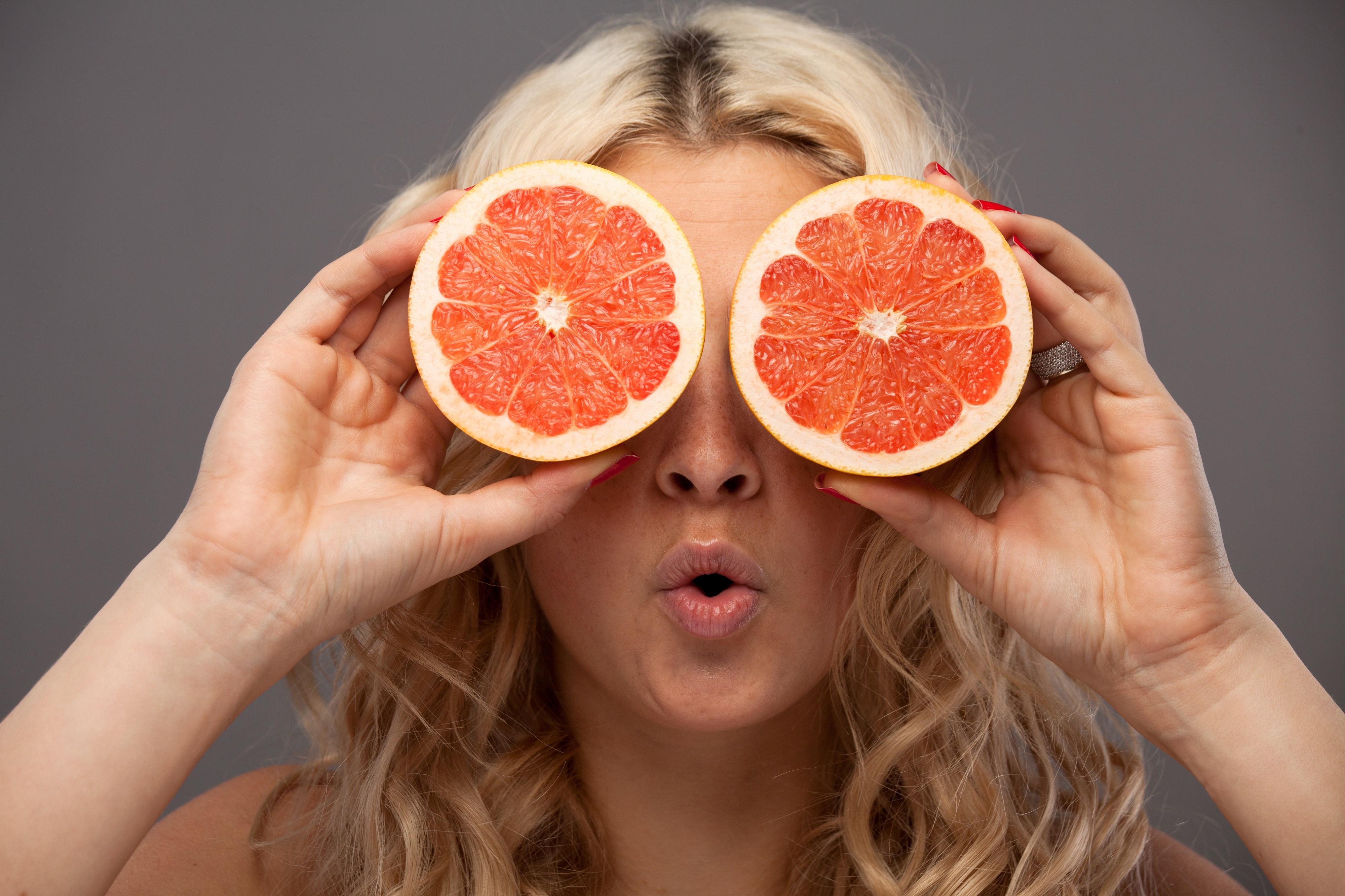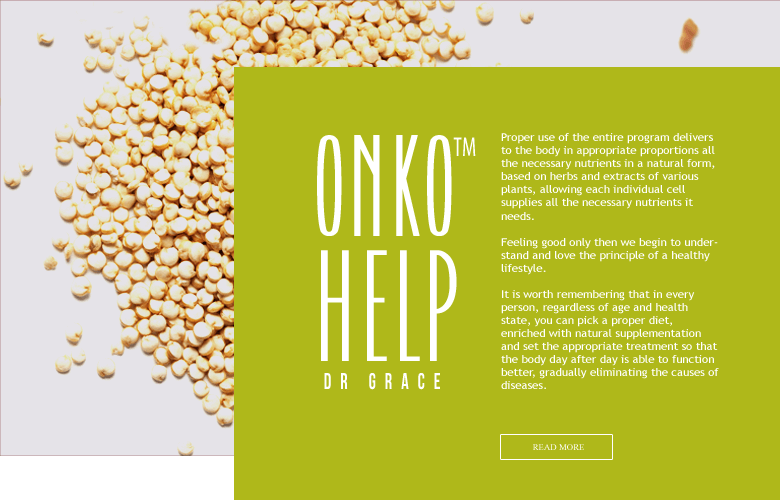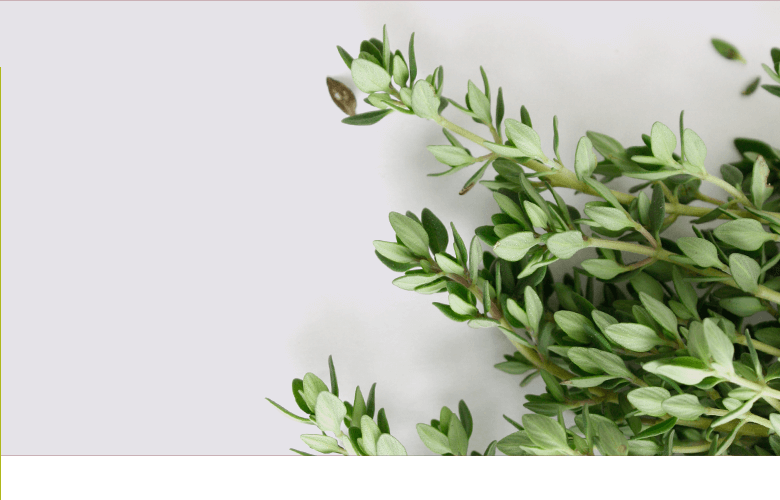
VALUABLE SUPPLEMENTATION Vitamin C DOSSIER MAGAZYN LNE
The vitamin C does not only support us in fight against cold. It also makes us younger, we have better skin, stronger bones and more energy. How much of it do we need and in what form we should take it – explains Doctor Grażyna Pająk.
LNE: Does the quantity of the consumed vitamin C influence our look ?
G.P. : The vitamin C works in favor of our beauty because it neutralizes the impact of the free radicals. It is also a very active antioxidant working in the blood plasma.
It works with other compounds catching the free radicals, which means the slower destruction of cells and a younger organism. At the same time it reduces the oxidized vitamin E activating it anew. Thanks to that it enhances the stability of the cell membranes in the whole organism, also in the skin. The vitamin C also enables the synthesis of the collagen and the basic proteins. Thanks to that the connective tissue that builds the skin, bones and cartilage becomes stronger and more resistant. Also the influence of this vitamin on the immune system is well-known. It is worth mentioning that is promotes the wound healing, increases the iron absorption and enables the transport of the fatty acids to the mitochondria. All of this has influence on the beautiful and youthful appearance. Additionally, the beneficial influence of the vitamin C on the nervous system makes us smile.
LNE: How can we tell we have the deficiency of vitamin C ?
G.P. : There are many signs that can alarm us: fatigue, grey skin, aggravation of allergy, decrease of immunity – for example when we cannot cure cold for a long time.
LNE: How much of it do we need ?
G.P. : A while ago we talked about as many milligrams as we weigh. 60-75mg of the natural vitamin C is really enough when we are healthy, we fell well and live a balanced life. However currently people say that we need around 200mg. There are several reasons: less vitamins in the natural food products, more polluted environment, common stress. However when we suffer serious health conditions, in the hospitals or private clinics doctors use much higher doses, sometimes even up to 20g of vitamin C per day.
We should also note that under long-time stress our demand for vitamin C is higher. The same is when we smoke because the substances included in the smoke eliminate this vitamin from our body. Also the environment matters. The lesser the electromagnetic smog around us is and the more we work with computers, the more vitamin C we need and we must pay attention to supplement it.
The same is with illnesses, infections, taking medicines, drinking alcohol, high level of physical activity – especially when it is cold. The demand for vitamin C is higher in autumn, when the temperature is lower.
Sometimes we need only 60 mg of vitamin from acerola to give body a right dose – in the case of the ascorbic acid it must be much more.
LNE: In what form should we take this vitamin ?
G.P. : As opposed to other organisms, a man, the rest of the primate mammals and the guinea pigs do not produce the vitamin C. That is why we need to take it in proper amounts along with the food. It is worth taking this vitamin in the natural form. It is the so-called levorotatory vitamin, connected to the biologically active substances contained in plants and concentrated plant extracts.
I recommend being careful when it comes to the vitamin C in the form of popular pills or effervescent tablets. They are the pure ascorbic acid which may irritate the cell membranes, increase the quantity of stones in the gall bladder, kidneys and bladder, disrupt the insulin production by bodies of people suffering from diabetes. Sometimes it causes the stomach or duodenum irritation. In bigger doses – as results from the current studies – it may inhibit the transport of electromagnetic impulses in muscles. It is a dextrorotary chemical compound that acidifies the organism. For the body it is a foreign substance which is hardly recognized by our DNA, so it is hardly absorbed. From the chemical point of view, the natural and synthetic vitamin C is the same compound, but biochemically those substances work differently.
LNE: What products should we take into consideration ?
G.P. : Fruit of course, such as the wild rose, currant, gooseberry, chokeberry, grapefruit, lemon, strawberries and vegetables such as cabbage and cauliflower, onion, garlic, leek, chive, tomato and pepper. The bigger amount of vitamin C is in the fresh and natural food. Its content is influenced not only by processing the crop but also the length of storage, conditions of transport and chemical substances used in production and preservation.
It is worth taking vitamin C in the natural form, the so-called levorotatory vitamin, which is contained in plants and concentrated plant extracts.
LNE: Does it mean that it is enough to eat properly or we should take supplements containing vitamin C ?
G.P. : With our current lifestyle and the state of environment the fruit and vegetables are not enough. However instead iof the pills with ascorbic acid I propose the natural juice and fruit extracts. They may be weak substances containing 60-150mg of this vitamin and they should be taken quite often. For example acerola products. This variant of cherry contains incredibly big amount of vitamin C along with the bioflavonoid. Sometimes we need only 60mg of vitamin with acerola to give our body a proper amount – in the case of the ascorbic acid it must be much more. If we decide to take synthetic ascorbic acid, it must be always accompanied by the bioflavonoid, so the biologically active compounds thanks to which the vitamin is friendly for the organism.
LNE: How often should we take those products ?
G.P. : Like every antioxidants, the vitamin C is best to be taken 2-3 times a day in small amounts and not once a day in a bigger amount. The antioxidants protect the cell membranes, however the organism cannot use them all at once. Their surplus is discharged and after about 6 hours the stress appears on the cell membranes. It is important to take vitamin C regularly – only then we can improve the immunity and balance the metabolic processes.
The deficiency cannot be complemented with one dose, however we can feel a bit better.
Dr Grażyna Pająk Biologist, diet coach, media expert, lecturer.
Interview for LNE – conducted Olga Filanowska
DrGRACE TEAM September 4th, 2015
Tags: active antioxidants, beauty, bones, connective tissue, drGrace, free radicals, increased iron absorption, LNE, more energy, skin, supplements, vitamin C, vitamin E, youth




































